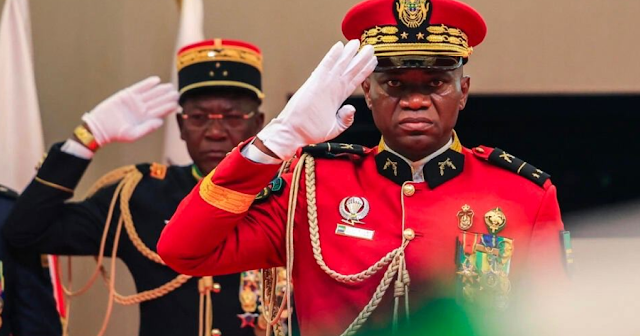
The new transitional president was sworn in on Monday in Libreville. Although he promised to set up 'free and transparent' elections, he did not commit to a date.
"We'll put them away – you never know, they might come in handy!" the young military officer quipped to his colleagues on Monday morning, September 4, as he put away two official portraits of Ali Bongo Ondimba in a closet in his office, which had previously hung on the walls of Libreville's Léon-Mba International Airport. The officer has no idea what use he could possibly find for the two paintings of his ex-president. But why bother destroying these long-gone images, which represent over 55 years of power in the hands of a single family? While it was only five days ago that Ondimba, who succeeded his father Omar in 2009, was deposed by a military coup − that already seems like an eternity.
For him, September 4 was the first day of a new era. Just moments later, Gabon's new strongman, General Nguema, took the oath of office. Impeccably dressed in the bright red uniform of the Republican Guard, his chest weighed down with all the country's decorations, he swore loyalty to his people, his country and democracy. A pledge made not following the customary path of the Constitution (as it had been suspended), but rather the Transition Charter, which was written in record time. Its content is not yet known.
However, the new transitional president was keen to make a solemn commitment in the presence of all the judges of the Constitutional Court. With the notable exception of their president, Marie-Madeleine Mborantsuo, placed under house arrest like a handful of other former officials, including Ali Bongo, his wife and their son. She was an essential cog in the Bongo regime's election-rigging machine. There is no doubt that she would have ultimately validated the fraudulent results of the August 26 presidential election, which served Ali Bongo a third term on a platter, as she had done in 2016.

















No comments:
Post a Comment
Comment